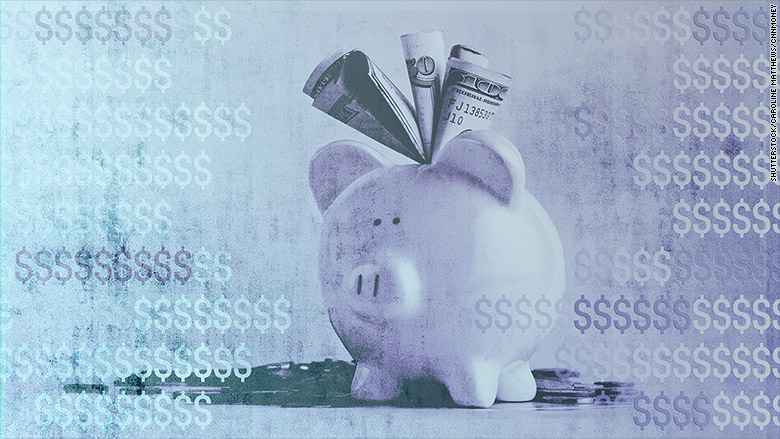For years, middle-class Americans have said that it seems harder and harder to get ahead. And there's no denying that middle-class incomes have only recently -- and infrequently -- increased at a decent clip. Still, there are things you can do to save more money this year.
If you're committed to saving more money in 2017, there are several different ways you can go about it. Let's take a closer look at three ways to increase your savings that are not only straightforward and simple, but can all be accomplished in a matter of days.
Pay yourself first
What exactly is paying yourself first? In short, it's taking money from your income, and diverting it directly to savings. If your employer offers direct deposit, there's a good chance it will allow you to send part of your paycheck to a savings account, and the rest to your regular checking. If that's the case, take advantage of this way to start putting away more money before you get a chance to spend it.
The idea behind paying yourself first is simple. People often struggle with developing healthy spending habits, and if they have money in their checking accounts, they are likely to spend it. By paying yourself first and sending money directly to savings, you reduce your take-home pay, and force yourself to adopt better spending habits.
Afraid you'll just dip into that savings for your next splurge? Open an account at a different bank, and don't activate the ATM card or set up online transfers. The harder you make it to access your money, the more likely you'll be to leave that money alone and let it accumulate.
Get money for your old stuff (and declutter at the same time)
One of the reasons a lot of people don't have as much money saved up as they could is tied to our penchant for acquiring and accumulating stuff we don't need; my family is just as guilty of this as the next. But that old suit that doesn't fit anymore, those out-of-fashion shoes, and the old fish tank that's been collecting dust in the garage still have monetary value.
One way to get money for all your old, no-longer-useful items is to sell them. Whether you use a weekend garage sale, Craigslist, eBay, or some other means, you can get cold, hard cash for all the stuff that's been cluttering up your home.
Don't have enough stuff for a garage sale, or don't think you could get anything online? Don't give up. Your stuff can still put money in your pocket: Donate it to a charity, and then claim a tax deduction at the end of the year. Nearly every town has a local charity thrift store which takes donations of household items and clothing.
And before you decide this is more trouble than it's worth: It's really simple to do. There are a number of apps to help determine the value of those items for your taxes, including my favorite, ItsDeductible from Intuit, which works directly with the company's TurboTax software. All you have to do is input the items you are donating, the charities you're donating them to, and the dates of the donations; the software will automatically assign values to the items, and enter the data on your tax return in TurboTax.
Pare back those monthly bills
Among the biggest money sucks that modern life has created are the dozens of potential recurring expenses. And while there's no getting rid of your power bill, or mortgage or rent payment, there's a very good chance that you do have a few monthly expenses you can reduce or even eliminate. This includes things like website and publication subscriptions that you may not use often enough to justify their cost, or even things like that landline nobody uses but you pay $40 per month for.
What about your data plan for your mobile phone? Are you paying for a lot more data than you're using? You may be able to shave a few bucks off your monthly cost by changing to a more appropriate plan.
The point is, you may be able to find some savings by simply "right-sizing" all of the monthly services you pay for, without losing out on any of the benefits you enjoy.
But at the same time, if you really need to set aside more money for savings, it may be time to give up some things you don't really need, so you can finally start setting aside money for a rainy day.
Modern life can be very noisy and distracting; before we know it, we are inundated with possessions that don't add value to our lives, and expenses that never end. If you implement the three steps above, not only will you find yourself with more money saved down the road, you'll also end up with a simpler life, and you'll have taken some steps toward developing better money habits.
And once you have that momentum built up, you'll have a much better chance of reaching all your financial goals.
Source: http://money.cnn.com
Theresa Todman, Managing Partner/CEO of B&M Financial Management Services, LLC . Theresa specializes in bookkeeping, accounting, QuickBooks solutions, small business tax issues and consulting.









No comments:
Post a Comment